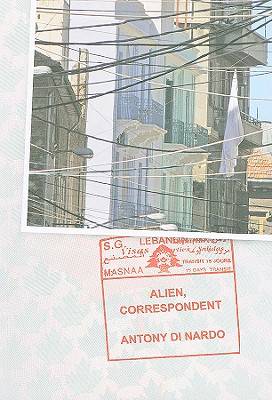
- Retrait gratuit dans votre magasin Club
- 7.000.000 titres dans notre catalogue
- Payer en toute sécurité
- Toujours un magasin près de chez vous
- Retrait gratuit dans votre magasin Club
- 7.000.0000 titres dans notre catalogue
- Payer en toute sécurité
- Toujours un magasin près de chez vous
Description
This arresting first collection is, in part, a delicately balanced look at Beirut from the perspective of a Westerner who lives and works in that remarkable city. Whether writing about the Middle East or about domestic life, Di Nardo refuses to romanticize; he doesn't moralize about the causes of perennial conflicts. He is that rare thing: a clear-eyed witness.
Here and there Starbucks coffee cups collide
with service taxis and re-assign the chaos, litter
the brittle landscape of the coast, while the world
command picks through the sands of lawlessness
for just a grain of what remains of itself,
the little air of familiarity defunct, despised and fed
to those on foot like scraps to gutter cats in the shade
of too many parked cars that took the place
of date palms standing on the sidewalks.
Yet no one would ever leave their shift at the wheel,
or turn home in the grim belief life's purpose is that unreal.
(from "Oh the streets of West Beirut")
Spécifications
Parties prenantes
- Auteur(s) :
- Editeur:
Contenu
- Nombre de pages :
- 96
- Langue:
- Anglais
Caractéristiques
- EAN:
- 9781894078795
- Date de parution :
- 15-04-10
- Format:
- Livre broché
- Format numérique:
- Trade paperback (VS)
- Dimensions :
- 166 mm x 221 mm
- Poids :
- 190 g

Les avis
Nous publions uniquement les avis qui respectent les conditions requises. Consultez nos conditions pour les avis.






